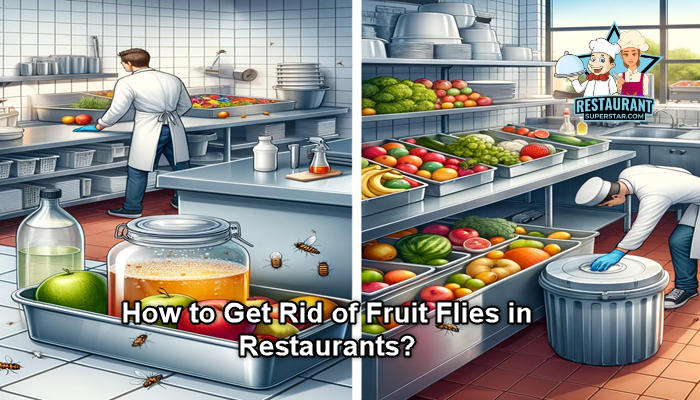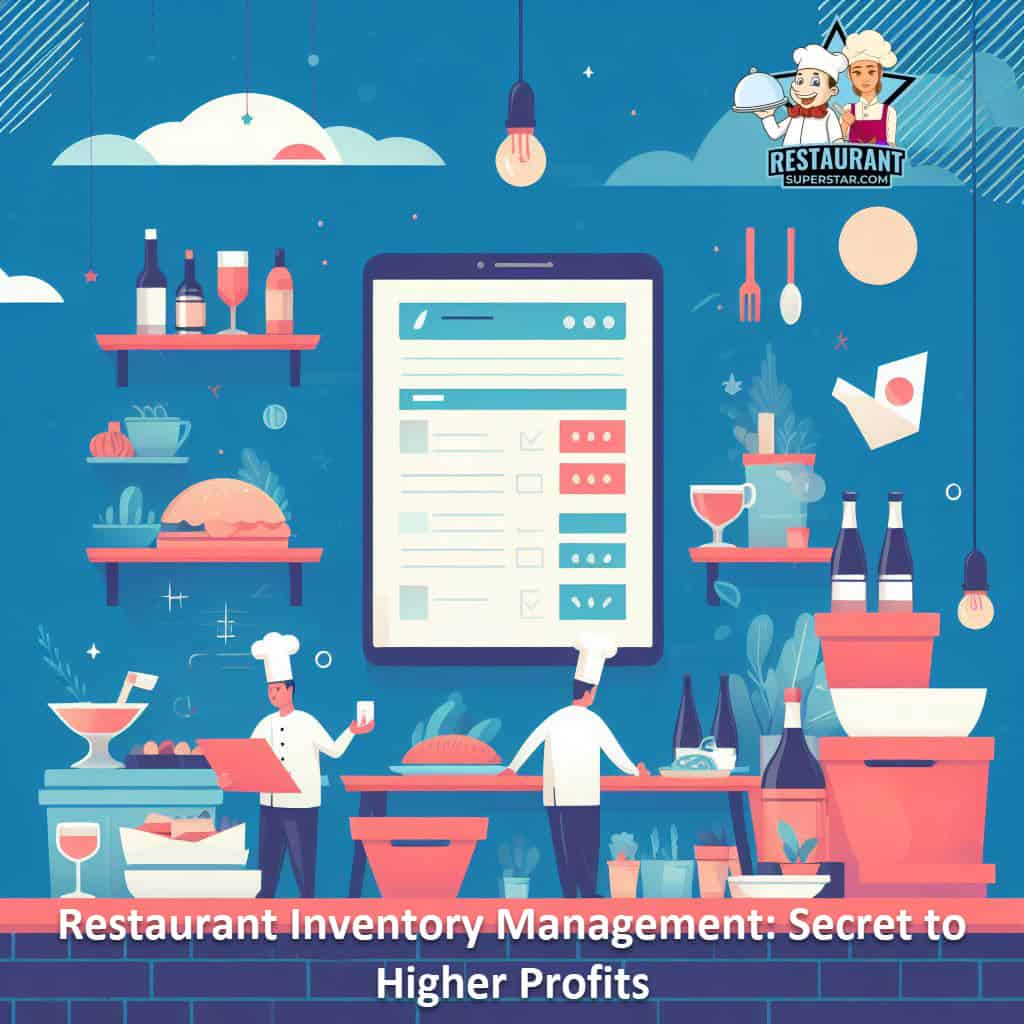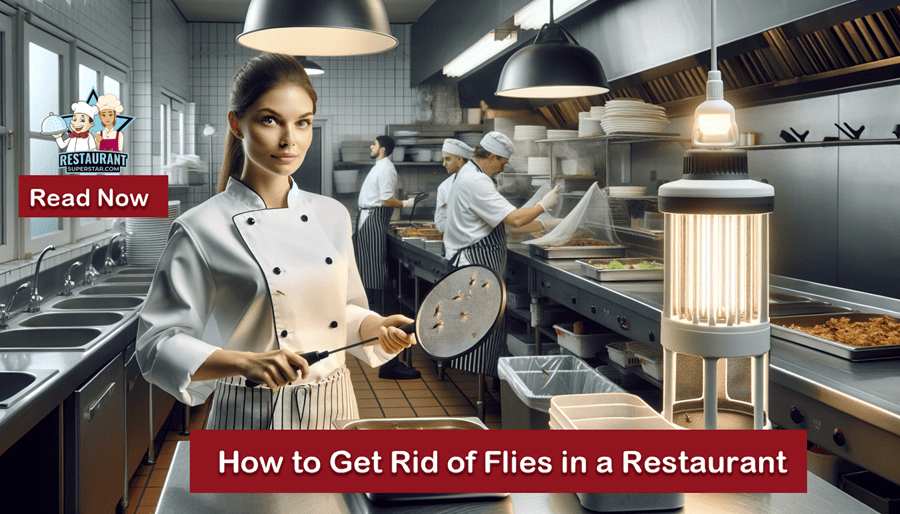Can a Restaurant Be Open Without Hot Water
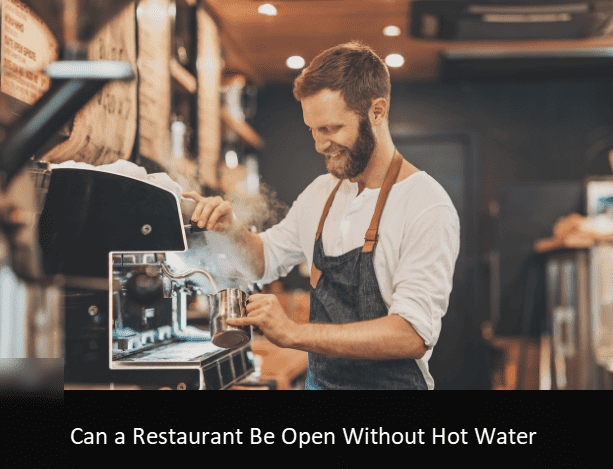
You’re not alone if you’ve ever asked, “Can a restaurant be open without hot water?”.
Can a Restaurant Be open without Hot water?
Can a restaurant be open without hot water? As a restaurant consultant based in sunny Florida, I can share that many states permit temporary operations of restaurants even without hot running water. However, it is crucial to emphasize that hot water remains an essential requirement for the continuous operation of a restaurant.
You might be scratching your head, thinking, “Jeff, you just contradicted yourself!” But hear me out.
If a restaurant finds itself without hot water – let’s say, due to a sudden equipment malfunction – it doesn’t mean they have to close their doors right away.
It means they need an alternative method for heating and storing hot water, especially for cleaning and sanitation purposes.
Think of it this way: hot water is to a restaurant what oil is to a car. You might be able to coast a short distance if you suddenly run out, but unless you refill it soon, you’re not going very far.
Over the years, restaurants have handled sudden hot water outages differently. Still, one thing remains consistent among the successful ones – they all have a written standard operating procedure (SOP) for this scenario.
The SOP isn’t just a fancy document gathering dust in a drawer somewhere. It’s a critical part of running a restaurant.
It outlines a specific timeline for managing a water heater outage and lists the exact steps to be taken along with the necessary materials.
If you’re a restaurant owner and your water heater goes down, deciding to stay open without enacting these emergency provisions is like playing with fire.
And I’m not talking about the one under your grill. You’re opening yourself up to health department fines and potential closure.
So, while a restaurant can technically stay open without hot water, it’s far from ideal and not something to take lightly.
As I always say to my clients, “Be prepared. Plan, and you’ll save yourself a lot of trouble.”
How Long Can a Restaurant Stay Open Without Hot Water?
How long can a restaurant stay open without hot water?” In a nutshell, the consensus is about 24 hours.
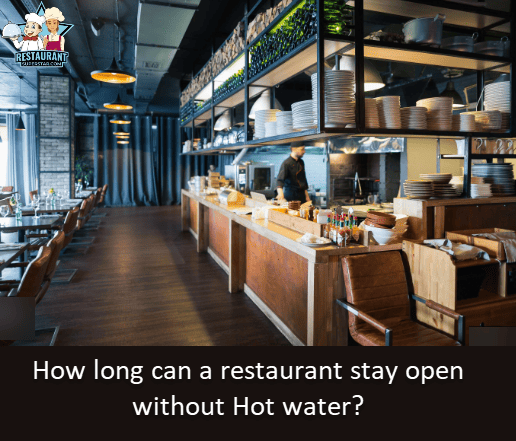
But let’s not stop there. You’ll need some backup plans in place.
From my experience consulting in Florida and up north in NY, hot water isn’t just a luxury—it’s a necessity for your restaurant. Think of all the sanitation requirements that depend on it.
So, while you might have a 24-hour grace period, you better believe you need an alternative up your sleeve.
I’ve seen restaurants in the Sunshine State using stockpots or even getting crafty with coffee machines and tea urns. It’s all about improvisation!
Now, it’s crucial always to be one step ahead. I recommend having a clear SOP (Standard Operating Procedure) for times when hot water might bail on you.
It doesn’t just reassure your team; it shows your customers that you’re committed to hygiene and quality, no matter the hiccup.
I’ve seen restaurants in NY getting into hot water (pun intended) with health departments over this issue. Trust me; it’s not a fine or closure you want to deal with.
Always remember that your customers value transparency. If you ever face a hot water outage, let them know what you’re doing to rectify the situation.
As long as you’re proactive and committed, you’ll sail through any challenges that come your way.
The Role of Hot Water in Restaurants.
Hot water is like the unsung hero in the restaurant world. It may not get the limelight of those mouth-watering dishes or fancy drinks, but it plays a vital part behind the scenes.
From a personal standpoint, it’s safe to say that hot water is the lifeblood of any restaurant, whether it’s a cozy local diner or a high-end gastronomic experience in downtown Miami.
So, what makes hot water so crucial in a restaurant setting?
Let’s break it down:
1. Cleaning and Sanitization
First and foremost, hot water is essential for cleaning and sanitizing. Imagine scrubbing the grease from a frying pan or cheese from a pizza stone with cold water.
Not the most appealing or effective image, right? Hot water helps remove grime and grease more efficiently, particularly with a commercial dishwasher. It also kills harmful bacteria that might otherwise linger on utensils, cookware, or surfaces.
2. Food Preparation:
When it comes to food preparation, hot water often plays a crucial role. Many cooking processes rely on hot water, from blanching veggies to boiling pasta. It’s not just about convenience; certain food safety standards require specific temperatures for cooking certain types of food, like chicken or eggs, to ensure harmful bacteria are destroyed.
3. Beverage Services
Imagine a restaurant without a steady hot water supply for making coffee, tea, or hot cocoa. Sounds disastrous, right? Hot beverages are a staple in any food service establishment, whether a cup of joe to start the day or a soothing tea to end a meal.
4. Employee Hygiene
Finally, let’s not forget the significance of hot water in upholding employee hygiene. It is imperative for staff to conscientiously and diligently cleanse their hands to mitigate the transmission of harmful bacteria and viruses. Hot water and soap are the most effective ways to ensure clean hands and a safer working environment.
So, to return to our original question, “Can a restaurant be open without hot water?” it’s technically possible, but it certainly won’t be business as usual. The importance of hot water in a restaurant cannot be overstated. It’s so much more than just a convenience; it’s a vital cog in the wheel that keeps the restaurant industry turning.
Health and Safety Standards for Restaurants.
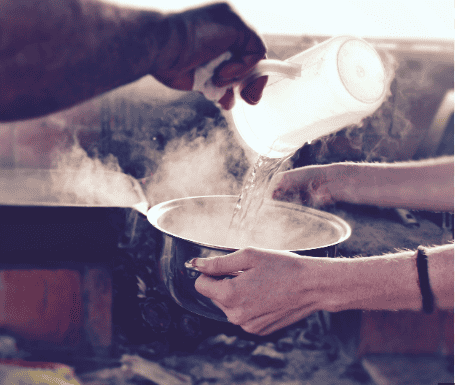
Alright, folks, we’ve talked about hot water’s indispensable role in a restaurant setting. But now, let’s get into some of the nitty-gritty stuff.
In theory, understanding hot water’s importance is good, but what about in practice? What are the actual health and safety standards that govern its use in a restaurant?
Understanding these standards is critical for those new to the restaurant business or even seasoned veterans who might need a refresher.
Why, you may ask? Aside from ensuring your customers’ and staff’s health and well-being, staying compliant with health codes can save your restaurant from penalties, closure, or damaging reputation.
So, let’s break down some of the key health and safety standards that restaurants must adhere to, especially when it comes to hot water:
1. Hot Water Temperature Regulations:
First and foremost, health codes require hot water to be at specific minimum temperatures. These temperatures can vary depending on your location and the specific task at hand, but generally, for things like hand washing, the water needs to be at least 100°F. For washing utensils and dishes, you’re looking at temperatures upwards of 110°F.
2. Hot Water Capacity:
Your restaurant must have an adequate hot water system capable of meeting peak demand. This means that during your busiest periods, you should be able to supply enough hot water for all tasks without interruption.
3. Sanitation Standards:
Hot water is a critical player in maintaining sanitary conditions in a restaurant. Standards dictate using hot water (along with approved sanitizing agents) to clean cooking utensils, surfaces, and equipment effectively.
4. Employee Training:
Proper hand hygiene training is of utmost importance for restaurant staff. They must diligently cleanse their hands using soap and hot water for at least 20 seconds. Regular refresher training is necessary to ensure consistent adherence to hygiene protocols, promoting a safe and clean environment.
5. Emergency Procedures:
Lastly, every restaurant should have an emergency procedure for when the hot water supply is interrupted. As I mentioned, your restaurant can technically remain open without hot water, but you’ll need a clear SOP for how you will heat and store hot water for cleaning and sanitation.
Hot Water System in Restaurants: An Overview.
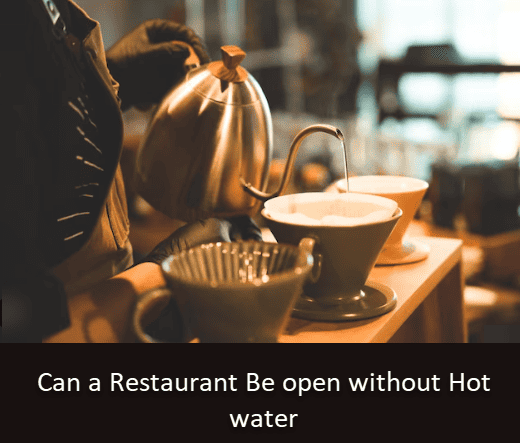
One of the things I often find when talking to restaurant owners is that many don’t give much thought to their hot water system until something goes wrong.
And it’s understandable. With everything else happening in a busy restaurant, the hot water system quietly works in the background.
But as we’ve discussed, hot water is critical in a restaurant’s operation. So, let’s pull back the curtain and take a closer look at what a typical hot water system in a restaurant might look like:
1. Hot Water Heater:
The heart of the hot water system is, unsurprisingly, the water heater. The specific type can vary – gas water heaters, electric models, or even tankless systems might be found in some restaurants. The right choice depends on factors like the size of the restaurant, the volume of hot water needed, and the available utilities.
2. Temperature Controls:
Every hot water system will have controls to adjust the water temperature. As mentioned earlier, different tasks require different water temperatures, so controlling this is critical. You don’t want to scald your hands every time you wash them, but you must also ensure the water gets hot enough for effective dishwashing.
3. Distribution System:
The hot water needs to get from the heater to where it’s needed, whether the kitchen, the bathrooms, or the bar area. This distribution system typically includes a network of pipes, pumps, and valves to ensure the water gets to where it’s needed when it’s needed.
4. Storage Tanks:
In larger restaurants, you might find storage tanks used to hold hot water ready for peak periods. These ensure there’s always enough hot water on hand, even during those busy Friday night rushes.
5. Maintenance and Inspection:
Last, a key part of any hot water system is its maintenance and inspection schedule. Regular checks can catch potential problems before they become a full-blown crisis, helping answer that all-important question: “Can a restaurant be open without hot water?” By keeping your hot water system in tip-top shape, you’ll be better equipped to keep your restaurant running smoothly, no matter what comes your way.
Remember, your restaurant’s hot water system is more than just equipment tucked away in a back room. It’s vital to your operations and crucial in everything from food safety to customer satisfaction.
The Consequences of Not Having Hot Water in a Restaurant.

Having worked with numerous restaurants over the years, I’ve seen firsthand what can happen when a restaurant suddenly finds itself without hot water. It’s not a pretty sight. In case you’re still unsure about the importance of hot water in a restaurant setting, allow me to outline some of the potential consequences of not having hot water in your establishment:
1. Health Risks:
Without hot water, you lose your most effective tool for killing harmful bacteria on utensils, cooking surfaces, and even employees’ hands. This can heighten the susceptibility to foodborne illnesses among customers and staff, resulting in health complications and the possibility of legal repercussions.
2. Operational Challenges:
Without hot water, your day-to-day operations can grind to a halt. Basic tasks such as washing dishes, preparing certain foods, and serving hot drinks become extremely difficult. Not to mention, your establishment’s overall cleanliness and comfort can be severely compromised.
3. Lowered Customer Satisfaction:
Customer satisfaction reigns supreme in the digital age of online reviews and social media. The absence of hot water can undeniably impact the quality of your service, resulting in dissatisfied patrons, negative feedback, and a tarnished reputation for your restaurant.
4. Fines or Closure:
Operating a restaurant without hot water could be seen as violating health and safety regulations, which can lead to hefty fines or even temporary closure by the health department. Trust me; this is not a situation where you want to find yourself.
5. Financial Impact:
All of the above consequences have a financial impact. Lawsuits, fines, and lost business can all hit your bottom line hard. To avoid these potential costs, it’s always better to be proactive and ensure your hot water system is in good working order.
So, when you ask, “Can a restaurant be open without hot water?” The answer is yes, but it has challenges and potential repercussions. It’s always advisable to have contingency plans to handle hot water outages promptly and effectively.
Food Safety and Sanitation: The Risk of Cross-contamination.
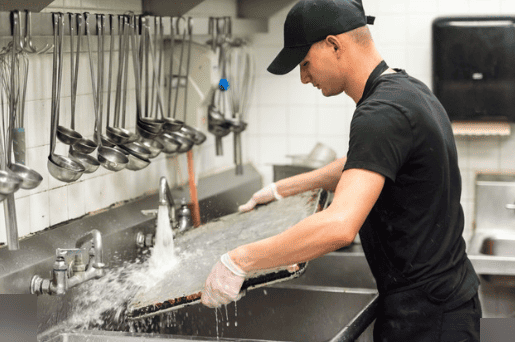
In my consulting work, I can’t stress enough the role of hot water in maintaining food safety and sanitation in a restaurant. Without it, the risk of cross-contamination and foodborne illnesses skyrockets. Here’s why:
1. Ineffective Dishwashing:
Hot water is crucial for effective dishwashing. It helps remove grease and food particles and, most importantly, kills bacteria and other pathogens. Without hot water, your dishes, utensils, and cooking equipment may not be cleaned properly, increasing the risk of cross-contamination.
2. Poor Hand Hygiene:
Regular and thorough handwashing with hot water is a fundamental food safety practice. Employees who handle food without properly washed hands can easily transfer bacteria, viruses, and other harmful microbes to the food, leading to potential outbreaks of foodborne illnesses.
3. Inadequate Surface Cleaning:
Hot water is also necessary for cleaning surfaces, including countertops, cutting boards, and tables. Without it, these surfaces can harbor bacteria and facilitate cross-contamination.
4. Impaired Food Preparation:
Some food items need to be prepared or thawed using hot water. Without access to hot water, restaurants might resort to unsafe practices, which can compromise food safety.
5. Potential Pest Issues:
Lastly, cleanliness in a restaurant is key to keeping pests at bay. If dishes, surfaces, and floors aren’t cleaned properly due to a lack of hot water, it could lead to a pest infestation, further endangering food safety.
When you ask, “Can a restaurant be open without hot water?”, you must consider these serious risks to food safety. While there may be temporary workarounds, it’s clear that a consistent supply of hot water is crucial for the safe operation of a restaurant.
Health Inspection in Restaurants: What to Expect.
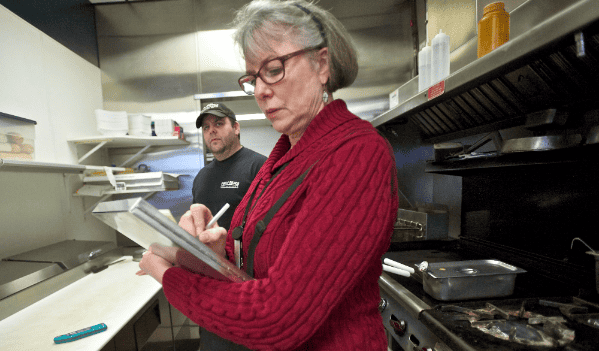
Navigating a health inspection can be stressful for any restaurant owner, but being prepared and understanding what inspectors are looking for can make the process easier. One critical factor inspectors will always check? Your hot water supply. Here’s why it’s so essential:
1. Handwashing Stations:
Health inspectors always examine the handwashing stations. They’ll check that hot and cold running water is available and that soap and hand-drying facilities are adequately stocked. The lack of hot water at these stations is a red flag for inspectors as it compromises hand hygiene.
2. Dishwashing Facilities:
Whether you have a high-tech dishwasher or your staff washes dishes manually, hot water is crucial for this process. Inspectors will look at your dishwashing facilities to ensure they can reach the necessary temperatures to clean and sanitize your dishes effectively.
3. Food Preparation Areas:
Health inspectors will assess your food preparation areas, ensuring they’re clean and sanitary. If hot water is unavailable for cleaning, this can lead to marks against your inspection.
4. Restroom Facilities:
Restrooms should also have a reliable supply of hot water. Lack of hot water in restrooms can lead to poor hand hygiene among staff and customers, spreading germs.
5. Overall Cleanliness:
Lastly, the overall cleanliness of your restaurant is a major factor in any health inspection. As we’ve discussed, hot water plays a big part in maintaining a clean and hygienic establishment.
When asking, “Can a restaurant be open without hot water?“, remember that health inspections are a regular part of operating a restaurant. Hot water unavailable during an inspection could lead to low scores, fines, or even closure.
Video Alert: Lack of Hot Water Leads to Temporary Closure of Northwest Side Indian Restaurant
Frequently Asked Questions –
Do you need hot water to open a restaurant?
Hot water is an essential requirement for opening a restaurant. It’s vital for various activities like cooking, cleaning, sanitation, and hand hygiene. Without hot water, you would not adhere to health and safety guidelines and could risk your customers’ health.
What should a restaurant do if they run out of hot water?
If a restaurant runs out of hot water, it’s crucial to have a contingency plan in place. The first step should be identifying the problem and arranging an immediate fix.
If the issue cannot be resolved immediately, alternative methods for heating water should be implemented. It might also be necessary to close temporarily until the hot water supply is restored.
Can a restaurant operate without hot water in California?
Like other states in California, hot water is a fundamental requirement for restaurant operations. The California Retail Food Code requires hot water at a minimum of 120°F to be available for utensil washing, handwashing, and other sanitation purposes. Therefore, a restaurant can’t legally operate without hot water.
What does the FDA Food Code require of a hot water system?
The FDA Food Code requires that hot water be available at all times at a temperature of at least 110°F at the handwashing sink. For cleaning and sanitizing equipment, the water should be at a temperature of at least 171°F.
How hot does water have to be in a restaurant?
According to FDA guidelines, hot water in a restaurant must be at least 110°F for handwashing and at least 171°F for cleaning and sanitizing equipment.
How much hot water does a commercial kitchen use?
The amount of hot water used in a commercial kitchen can vary based on the size of the restaurant, the number of customers served, and the type of cooking methods used. A small-to-medium restaurant might use 1,500 to 2,500 gallons of hot water daily.
Can a restaurant run without hot water in Ontario?
In Ontario, regulations under the Health Protection and Promotion Act require hot and cold running water to be readily available for food preparation, utensil cleaning, and handwashing. A restaurant cannot legally operate without hot water.
Can a business stay open if there is no hot water in the UK?
In the UK, businesses like restaurants must have a hot water supply for hygiene reasons. Suppose a restaurant does not have hot water. In that case, it is usually considered a serious breach of hygiene regulations, which could lead to the business being closed until the issue is fixed.
Do you need hot water in a commercial kitchen?
Yes, hot water is a critical component in a commercial kitchen. It is required for cooking, cleaning, and sanitizing equipment and utensils and proper handwashing to maintain hygiene standards.
How do you deal with no hot water?
If there’s no hot water, the first step is identifying the problem. Check the water heater, gas supply, and electrical connections. If you can’t fix the issue yourself, call a professional immediately. You should also implement your contingency plan for heating water and maintaining hygiene standards.
How long can hot water be out?
The length of a hot water outage can vary depending on its cause. Certain issues can be resolved promptly, while others may take a few hours or days to fix. It is crucial to have a contingency plan prepared for these circumstances.
How do you handle no hot water?
If you’re faced with no hot water, you should try resolving the issue as quickly as possible. If the problem can’t be fixed immediately, consider implementing alternative methods to heat water. Also, you might need to close your restaurant until the issue is resolved temporarily.
What happens if your hot water goes out?
The restaurant operations can be severely affected if your hot water goes out. It can disrupt the cooking process, cleaning, and sanitizing routines and impact the overall hygiene of your restaurant. It’s crucial to fix it immediately or have a backup plan.
Is hot water mandatory in California?
Yes, hot water is mandatory in California for all establishments serving food. The California Retail Food Code specifies that hot water should be at a minimum of 120°F for cleaning and sanitation purposes.
What is the hot water regulation in California?
According to California’s Retail Food Code, a constant hot water supply should be readily available for washing, sanitization, and hand hygiene. The water should be maintained at a minimum temperature of 120°F.
What is the hot water requirement in California?
The hot water requirement in California, as per the California Retail Food Code, is a minimum of 120°F for utensil washing, handwashing, and other sanitation purposes.
What is the OSHA requirements for hot water temperature?
OSHA regulations state that hot water temperature for handwashing should be at least 100°F. However, the FDA Food Code recommends a temperature of at least 110°F.
What is the OSHA commercial hot water temperature regulations?
OSHA requires commercial establishments to provide water for handwashing at a temperature of at least 100°F. However, it’s recommended to follow FDA guidelines, which state that hot water should be at least 110°F for handwashing.
What are the FDA regulations for water?
The FDA requires that hot water be available at all times at a temperature of at least 110°F at handwashing facilities. For sanitizing and cleaning, the water temperature should be at least 171°F.
What is the industry standard for hot water?
As suggested by the FDA, the industry standard is for hot water to be available at a minimum of 110°F for handwashing and at least 171°F for sanitizing equipment and utensils.
Why is it important to have hot water in a professional kitchen?
Hot water is vital in a professional kitchen for multiple reasons. It’s essential for cooking certain dishes and for brewing hot beverages. It’s also crucial for sanitizing and cleaning utensils, cookware, and the kitchen area, which is necessary to maintain hygiene standards and prevent foodborne illnesses. Additionally, hot water is necessary for employees to wash their hands properly.
Do commercial dishwashers need hot water?
Yes, commercial dishwashers do need hot water. They often require water at high temperatures (around 180°F) to effectively sanitize dishes and remove food residue. This high temperature kills bacteria and ensures the dishes are safe.
Is it an OSHA violation to not have hot water?
Yes, it can be considered an OSHA violation if a workplace does not have hot water. As per OSHA guidelines, employers must furnish their workers with clean and easily accessible restroom facilities. This includes handwashing stations equipped with hot and cold running water.
Is it legal for a business to run without water?
In most jurisdictions, it is not legal for a business, especially a restaurant, to operate without water. Water is essential for maintaining sanitation and hygiene standards, crucial for employees’ and customers’ health and safety.
Can a restaurant open without running water in Texas?
Like in most other states, a restaurant cannot legally operate without running water in Texas. The Texas Food Establishment Rules require adequate hot and cold water for food preparation, cleaning, and handwashing. Without running water, a restaurant would not be able to maintain the necessary sanitation standards and could potentially risk the health of its customers.
Conclusion: Can a Restaurant Be Open Without Hot Water?
After traversing the complexities of restaurant operations without hot water, it’s time to definitively answer the question that has been our focus: “Can a restaurant be open without hot water?”
The simple answer is that while it might be possible for a restaurant to operate temporarily without hot water, doing so poses significant risks and challenges. To recap:
1. Essential for Operations:
Hot water plays a vital role in every aspect of a restaurant, from food preparation and dishwashing to hand hygiene and general cleanliness. Operating without it can lead to operational disruptions and decreased service quality.
2. Health and Safety Concerns:
Without hot water, the risk of cross-contamination and foodborne illnesses increases significantly. Hot water is vital for sanitation, and without it, restaurants can quickly become a breeding ground for harmful bacteria and pathogens.
3. Regulatory Compliance:
Hot water is a key item on any health inspector’s checklist. If your restaurant is caught operating without it, you could face hefty fines or even temporary closure.
4. Impact on Reputation:
A restaurant’s reputation can suffer irreversible damage if it is discovered to be operating without hot water. Health code violations have the potential to rapidly disseminate, resulting in an erosion of customer trust and, ultimately, a downturn in business.
While it might be technically possible for a restaurant to open without hot water, the risks far outweigh any potential benefits. A reliable hot water supply is essential for any restaurant’s safe and successful operation.
As a restaurant consultant, I advise investing in a reliable hot water system, conducting regular maintenance checks, and having a contingency plan in case of outages. It’s better to be prepared and proactive than ask, “Can a restaurant be open without hot water?”
Jeff Smith is a Restaurant Consultant with over 20 years of hospitality experience ranging from server to owner and general manager. He focuses on Restaurant POS technology as well as restaurant marketing. Check out our world-famous restaurant resources page for a comprehensive offering of hand-picked resources and tools to help your business. You can also check out some of our other restaurant business articles.

